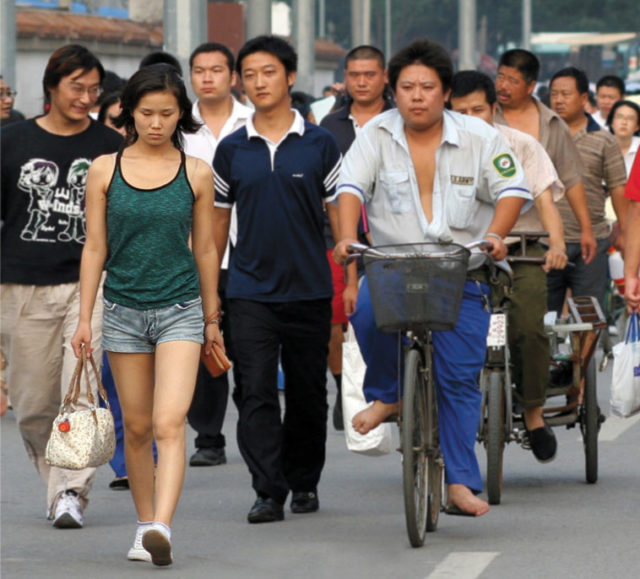The following is adapted with permission from an article that originally appeared on TeaLeafNation.com.
In late February 2013, the Sina Weibo news portal published an article that included the following assertion:
According to relevant regulations, the first marriage of males aged twenty-five or older and females aged twenty-three or older are considered ‘late marriages’. A bit of simple math shows that 2013 is the first year that some post-Eighties [those born in 1980 or later] are turning thirty-three, and the first year that some post-Nineties [those born in 1990 or later] are of ‘late marriage’ age.
Over 400,000 web users discussed the topic on Sina Weibo, and with print media covering it as well, the subject of ‘late marriage’ generated a discussion on a variety of issues related to marriage, age and gender roles in China: how can a Chinese woman born in 1990 already be too old for marriage?
Though the age for late marriage was not set in the law, twenty-three years of age for women and twenty-five years for men has been the assumed standard at local levels, and has been used in such documents as the Population and Family Planning Policy of Beijing (Chapter 3, Article 16), published in 2003. Several decades ago, the state actually encouraged late marriage. Chapter 2, Article 6 of the 1980 Marriage Law states: ‘Late marriage and late childbirth should be encouraged.’
Although the original aim of the Population and Family Planning Policy was to curb population growth, policy-makers today have different concerns. A number of prominent Chinese academics recently signed a letter pointing out that even if China’s one-child policy were to be scrapped immediately, the Chinese population will begin to shrink in ten years. Faced with an aging population, China has an interest in hurrying its post-Nineties citizens into marriage.
Yet some young Chinese women still hesitate. Some of their reasons are similar to those of other women around the world who are less keen than those of previous generations to jump into marriage early (or in some cases, at all). Ifeng.com surveyed over 35,500 single women in China in early 2013. The most popular response to the question ‘What kind of men are you willing to marry?’ was ‘a divorced man who owns a house and car’ followed by ‘a successful forty-something man who has gone on a lot of blind dates but is still single’. The least popular kind of man, coming behind even ‘an unassuming computer programmer’ and ‘a handsome freelancer’, was the so-called ‘phoenix man’ (fenghuang nan 凤凰男), a successful and ambitious businessman or corporate executive from a humble background. ‘Phoenix men’ are assumed to have exhausted the resources of their families in the process of educating themselves and raising themselves out of poverty, and are expected to have many family members burden them financially and emotionally. Instead of being regarded as heroes who changed their own destinies, ‘phoenix men’ are perceived to be prone to insecurity, fear of failure, penny pinching, inferiority complexes, and prioritisation of their extended family over their own wife and children.
One female Weibo user commented on the popularity of the ‘divorced man with a house and a car’:
I personally think that you may lose face by marrying an old man, but at least you might have some security in life. He might also be less flirtatious. A more stable life would bring you a sense of safety.
A majority of the women surveyed said that while single, they devote themselves to their work. Almost half reported they had no sex life. A sizable 13.28 percent said they did not want to marry, while 23.87 percent said they were ‘uncertain, tired, and might never love again’. Paradoxically, as pressure from the state and society to marry early increases, women might opt out altogether from a system that seems designed to entrap them in a loveless economic relationship or a love match that makes no economic sense.



